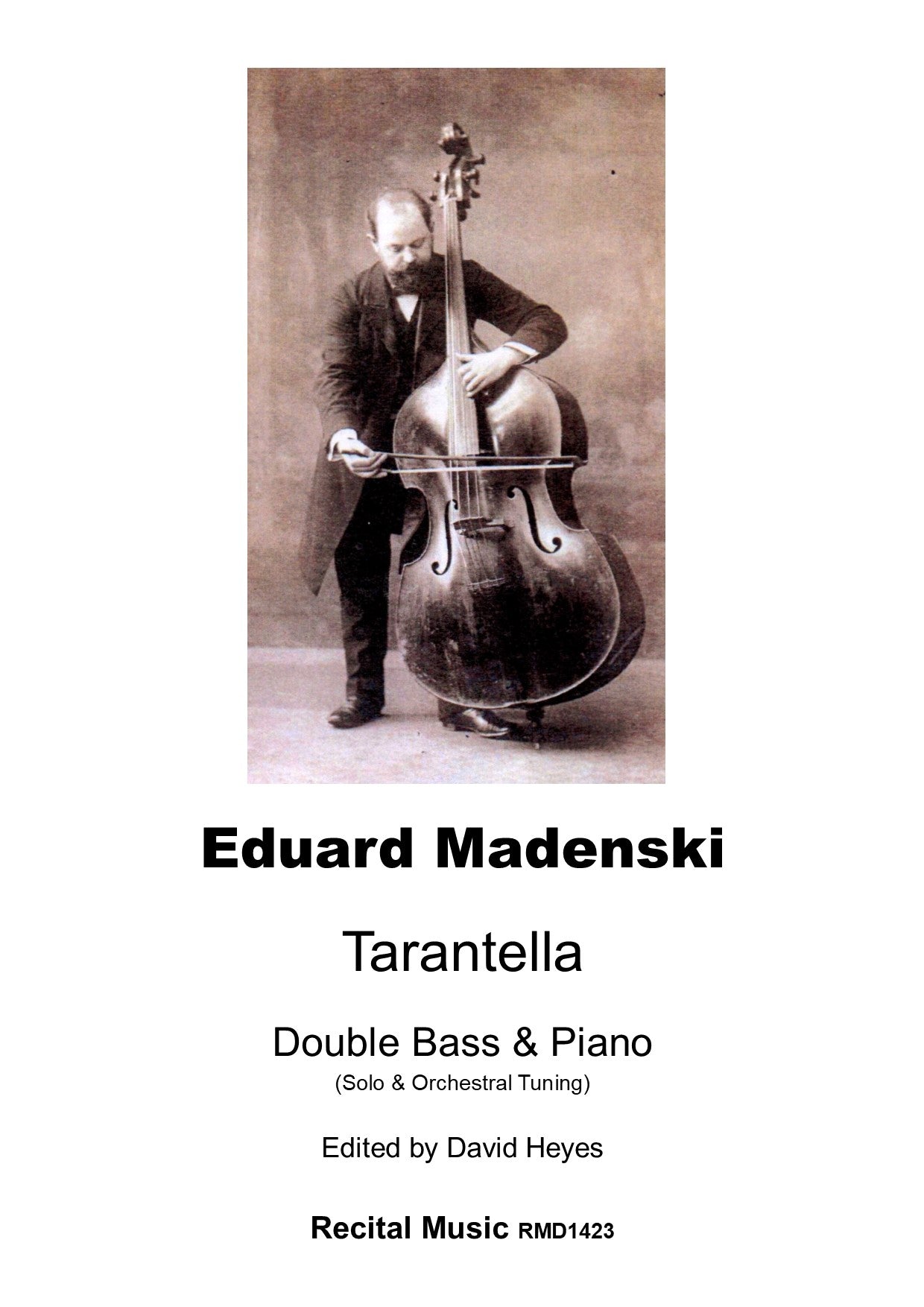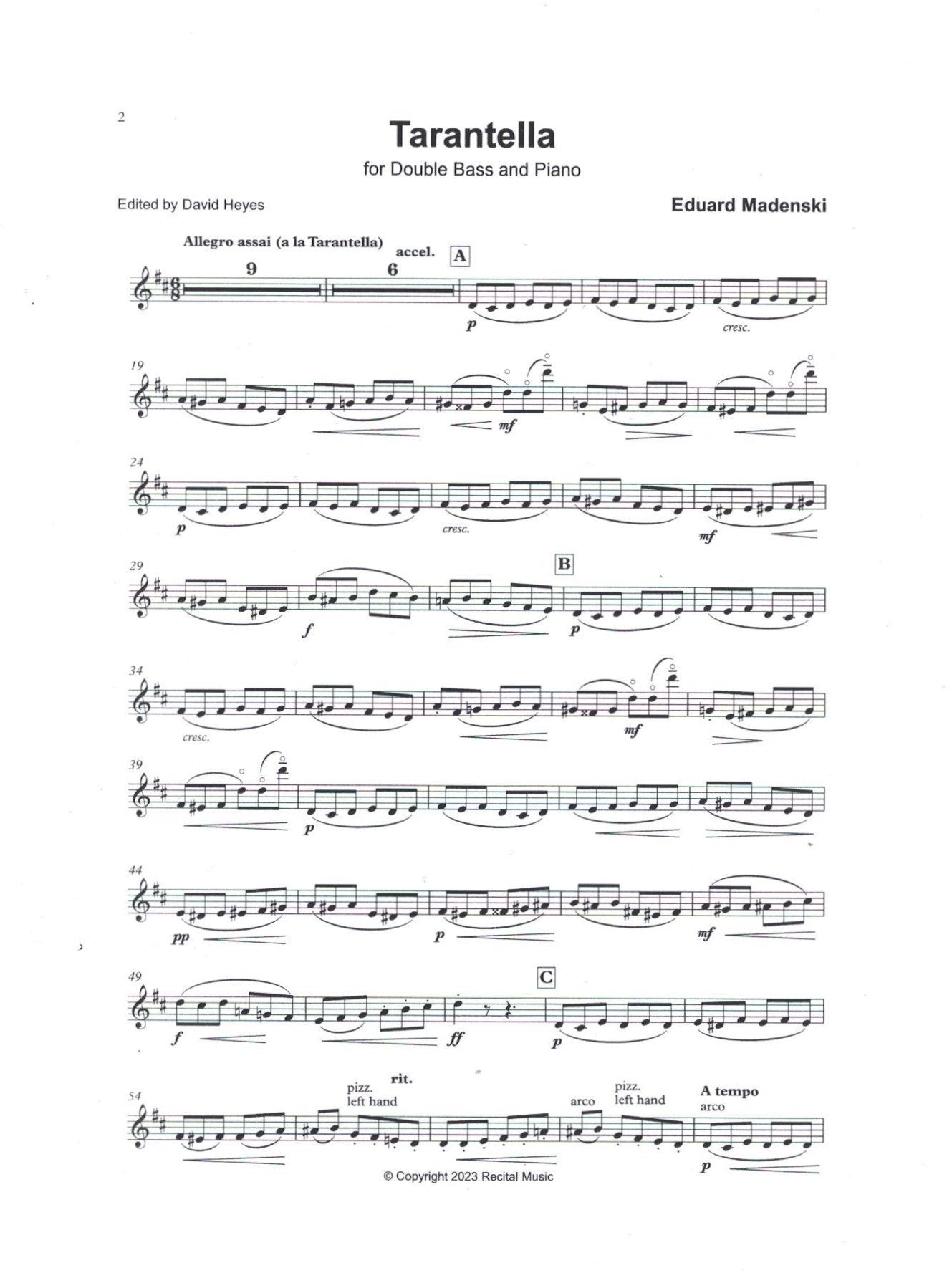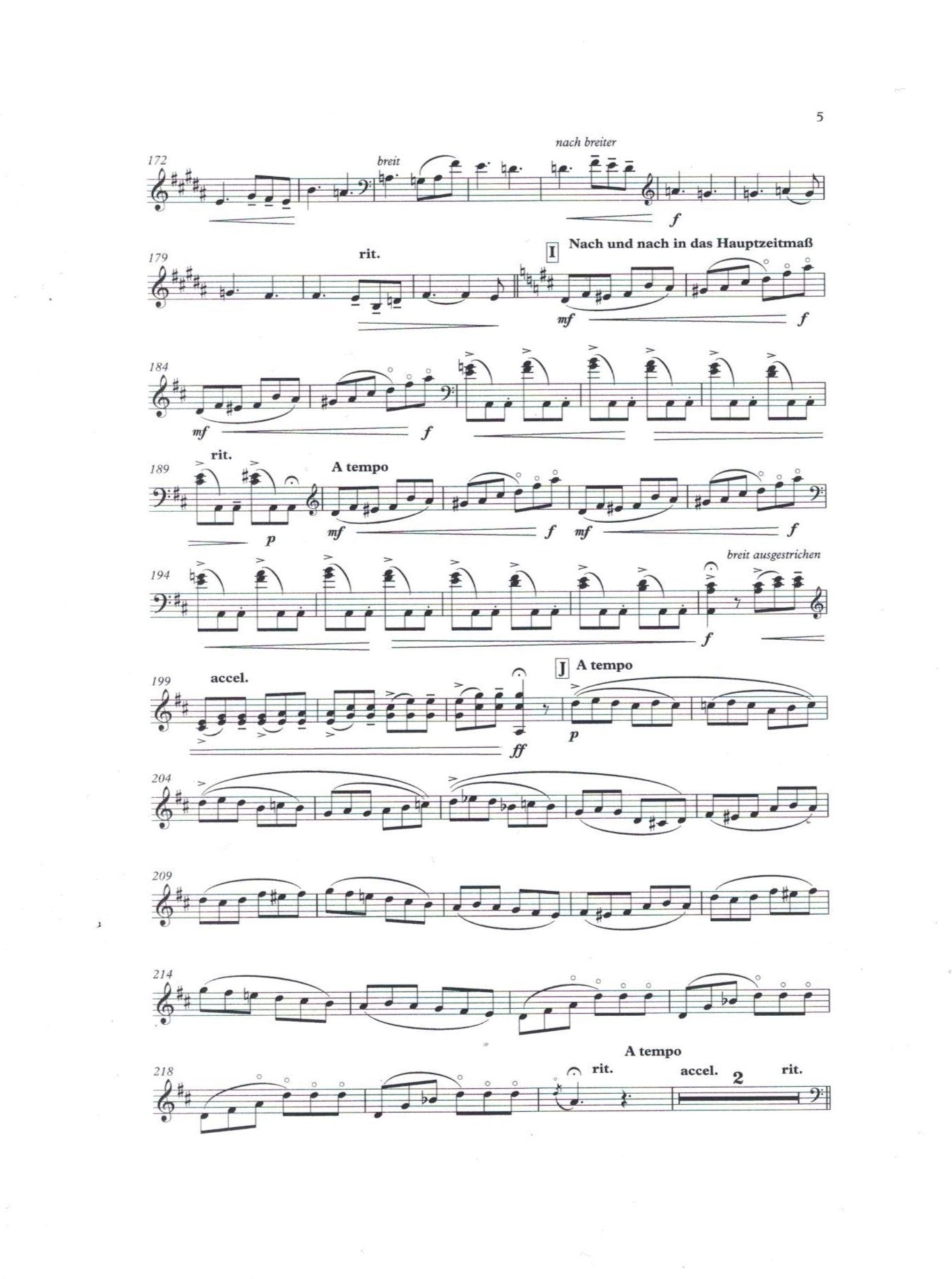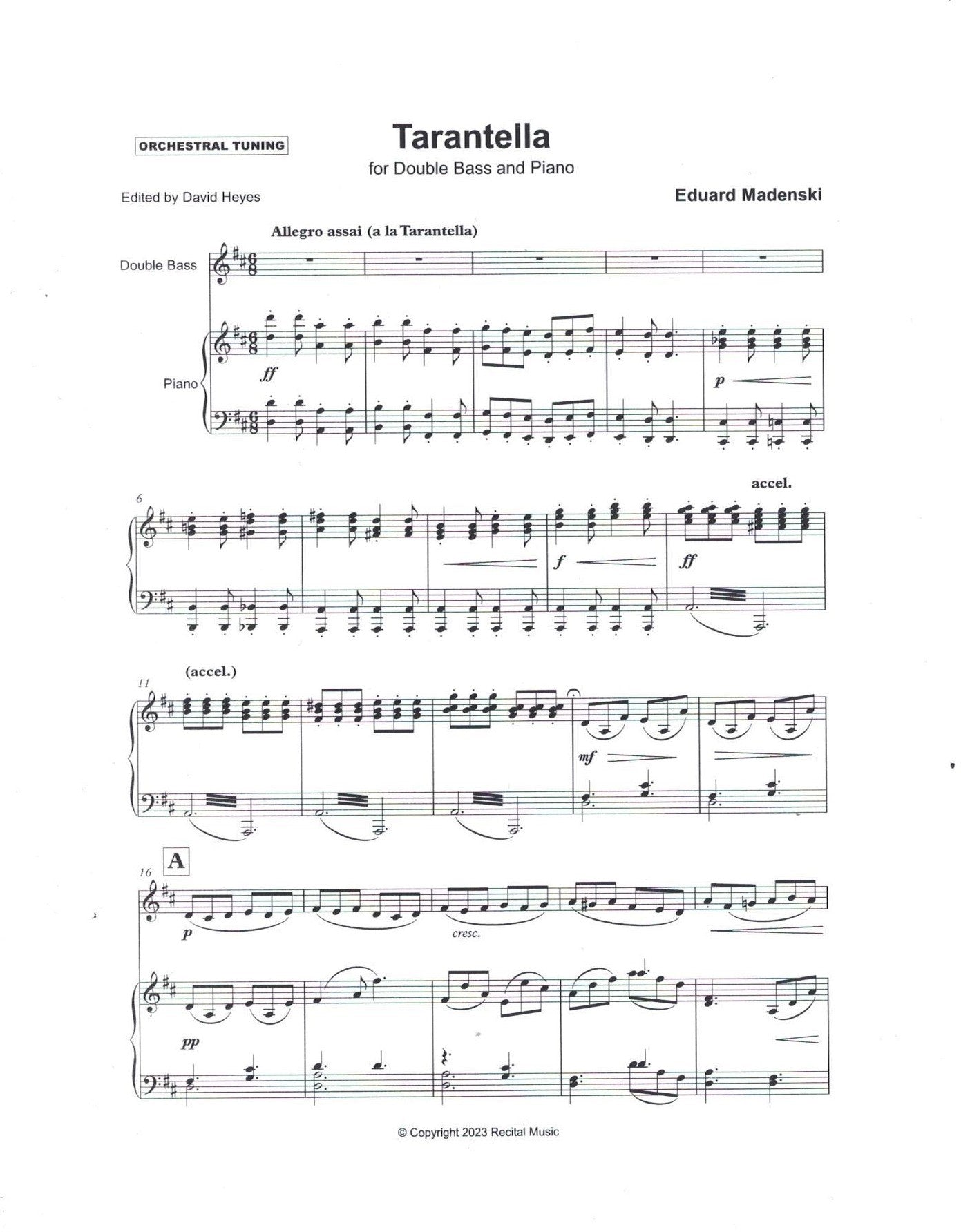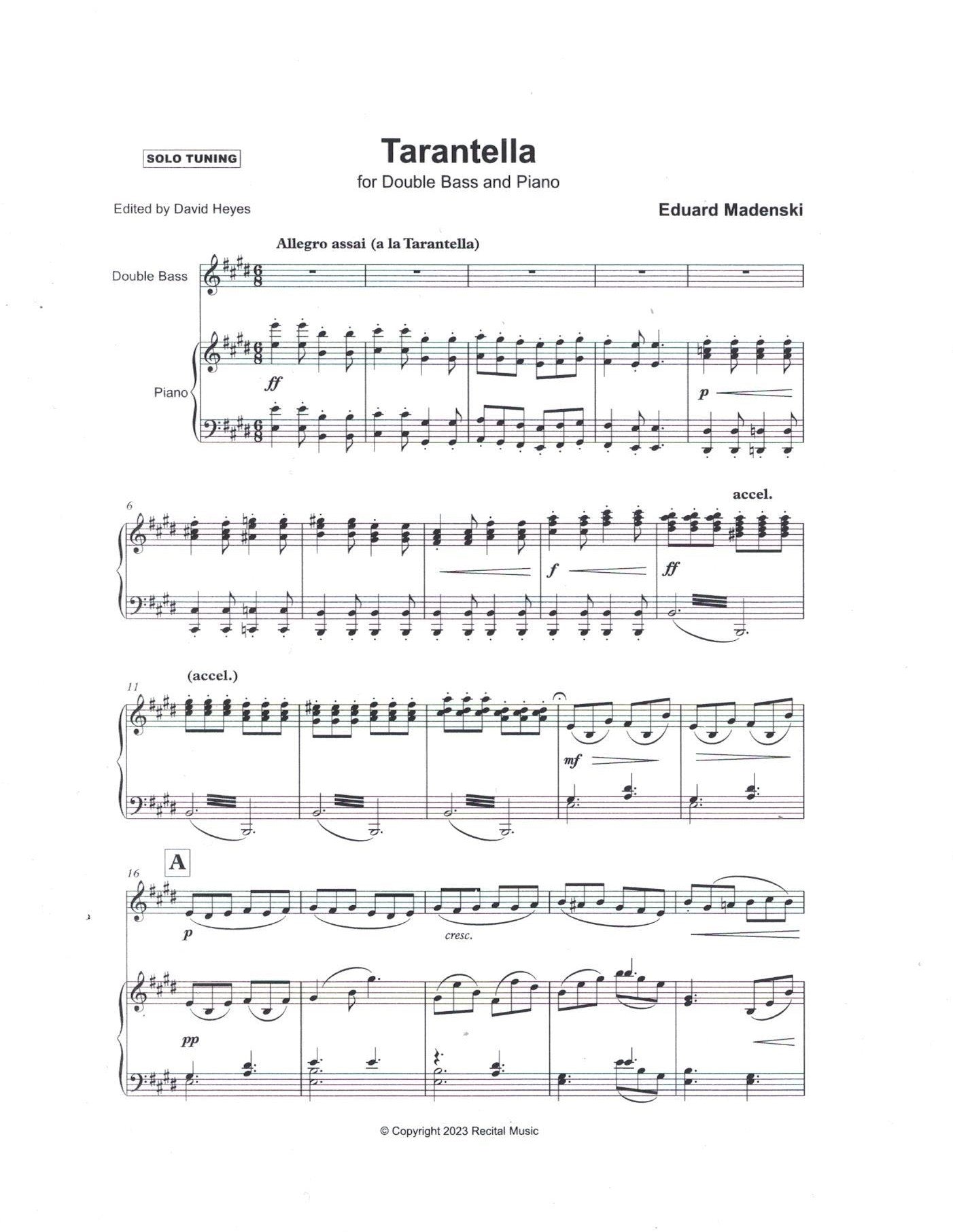David Heyes
Eduard Madenski: Tarantella for double bass & piano
Eduard Madenski: Tarantella for double bass & piano
Couldn't load pickup availability
About the Composition
Madenski's Tarantella for double bass and piano was composed in the early 20th century and is an exciting and virtuosic workout for the double bass. As a great player, Madenski knew the solo potential of the double bass and exploited the technical challenges to the limit.
In one extended movement, this is a tour-de-force for the solo bassist and there are musical and technical challenges throughout the range of the double bass with the opportunity to display a supreme command of the instrument and to demonstrate what is possible on the double bass. There are the usual fireworks and pyrotechnics expected in a tarantella, with a beautifully slow and lyrical middle section framing music of great spirit and energy.
The music is lively, rhythmic, fun, and full of virtuosic bravura and this edition is available for solo and orchestral tunings.
About the Composer
Eduard Madenski was born on 20 September 1877 in Vienna, and began his musical studies at the age of fourteen, studying violin at the Vienna Conservatoire with Josef Maxincsaz and theory with Adolf Prosniz and Stephan Stocker. In 1892 he began to study double bass with František Simandl, graduating in 1898 with the highest honours. The following year he was appointed a member of the Vienna Court Opera and in 1909 became Principal Bass of the Vienna State Opera. In 1910 his 'Orchesterstudien aus Richard Strauss' symphonischen Werken' was published and includes excerpts from many of the challenging orchestral works by Strauss which were new to players and audiences and many thought to be unplayable. Madenski and Strauss worked together in Vienna and the bassist was greatly respected and valued by the composer who commented "So gespielt, braucht der Kontrabass die Rivalität mit dem Violoncell nicht zu scheuen, im Gegenteil, sein Ton hat eine edle Männlichkeit, die dem Violoncell fehlt.“ ["When so played the bass has no rivalry with the violoncello, on the contrary, his tone has a nobility that is missing from the cello."] Alongside his orchestral duties Madenski also played as a soloist, writing and transcribing a number of works for the instrument. He was described as a 'Kontrabass-Virtuose' at his debut solo recital in the Grosser Musikvereinssaal in Vienna on 26 November 1903, receiving top billing above Betty Schubert, a singer with the Court Opera, alongside pianist Rudolf Heidinger.
Madenski become a member of the Vienna Philharmonic Orchestra and also succeeded Simandl as Professor of Double Bass at the Vienna Conservatoire on the latter's retirement. Two of his most successful and famous students were Joseph Prunner (1886-1969) and Hans Fryba (1899-1986), and it is likely that Madenski wrote his 'Instruktive Tonleiter- und Akkordstudien' for his students at this time, advocating the use of the fourth finger in thumb position. The Vienna Philharmonic Orchestra made its first trip to South America in 1922, performing 34 concerts in Rio de Janeiro, Montevideo and Buenos Aires, and according to the orchestra's website "...was greatly admired with true southern fervour wherever it
appeared..." The success of the tour was followed by a further invitation to tour South America in the summer of 1923, and this time the orchestra played 42 concerts in Rio de Janeiro, Sao Paolo, Montevideo, La Plata, Buenos Aires and Bahia. The website continues "...this trip, however turned into a nightmare: first violinist Karl Knoll, suffering with depression, committed suicide by throwing himself out of his hotel window; clarinettist Franz Behrends died in Buenos Aires of pneumonia; and on the return trip plague brok out aboard ship, killing several passengers including contrbassist Eduard Madenski. In the presence of deeply grieving colleagues, his corpse was committed to the deep at latitude 22, longitude 20 near the African coastline." Barely 46 years old when he died, Eduard Madenski had been a successful solo and orchestral bassist, teacher and double bass composer, and a century after his death, his name is still remembered by many double bass historians and activists.
